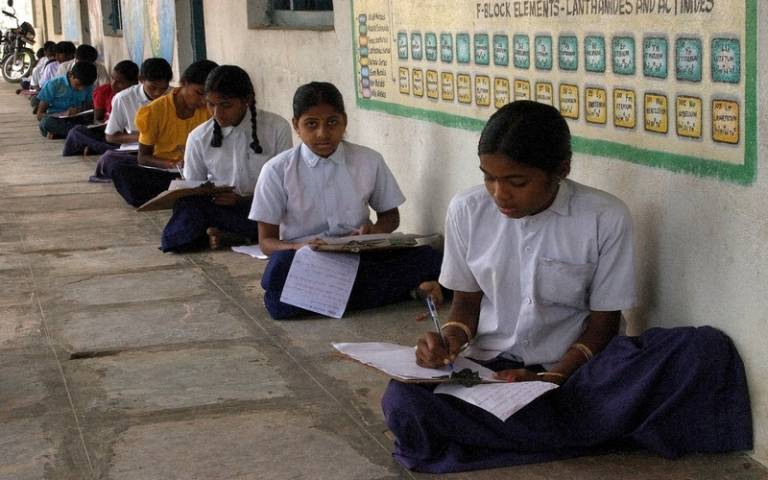Learning lessons from educational programmes in low- and middle- income countries
UCL education expert is contributing to a major collaboration to reduce aspects of poverty in low- and middle- income countries

8 October 2020
More than 170 million people could escape extreme poverty if every child left school with basic reading skills. But despite a focus on educational programmes worldwide, the world is still facing an education crisis.
In 2002, an ambitious longitudinal study began following the lives of 12,000 new-born children from Vietnam, Ethiopia, Peru and India, a group of whom were born in 2002–02, and second, older, group who were born in 1994–95. The Young Lives study, led by the University of Oxford’s Department of International Development, was launched to help shed light both on the drivers and impacts of child poverty, with an emphasis on education and skills.
“As many as six out of ten children and adolescents worldwide are not achieving minimum proficiency levels in reading and mathematics,” explains Dr Caine Rolleston (UCL Institute of Education), who has led the education research within Young Lives since 2011.
““A key challenge to tackling poverty is to deliver on every child’s right to learn basic skills.”
His work focusses on education in developing countries, including learning outcomes and educational access and equity. “A key challenge to tackling poverty is to deliver on every child’s right to learn basic skills,” he says.
In Ethiopia and India where attainment levels are poor overall despite government programmes to support schools, Dr Rolleston and colleagues found that disadvantaged children commonly ended up at schools where teaching was less ‘effective’.
By contrast, in Vietnam, educational attainment is high. Success comes from education policies that focus on foundation skills at primary school, and teachers working to a standard that all children are expected to reach, while there, of course, remain challenges
There is also positive discrimination for children from disadvantaged homes in some cases. For example, through free school places at boarding schools. This removes certain economic barriers and protects children from pressures to work at home.
Data from Young Lives have been used at national and international levels to support change in education including by DFID, UNESCO and the World Bank.
“This has informed local policies and practices that can help correct disadvantages presented by socio-economic status,” Dr Rolleston says.
 Close
Close


